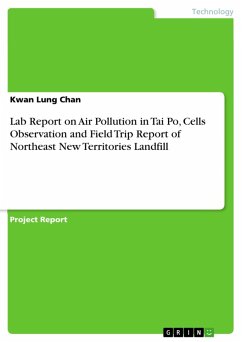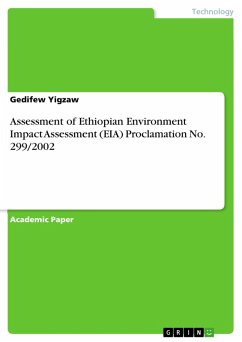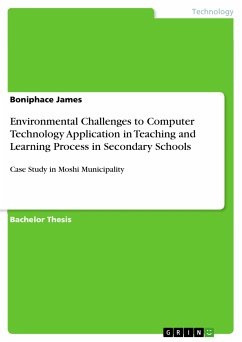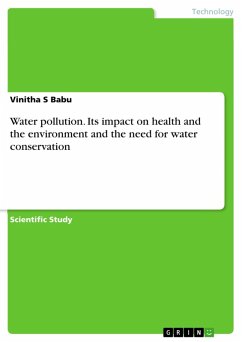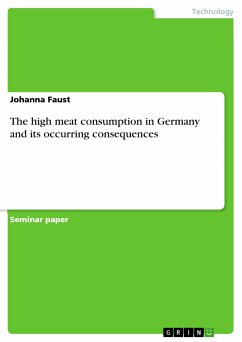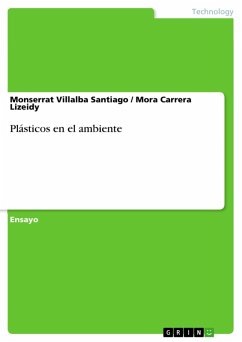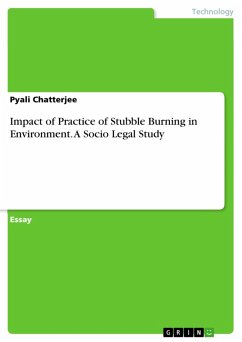
Impact of Practice of Stubble Burning in Environment. A Socio Legal Study (eBook, PDF)
Sofort per Download lieferbar
Statt: 9,99 €**
5,99 €
inkl. MwSt. und vom Verlag festgesetzt.
**Preis der gedruckten Ausgabe (Broschiertes Buch)
Alle Infos zum eBook verschenkenWeitere Ausgaben:

PAYBACK Punkte
0 °P sammeln!
Essay from the year 2018 in the subject Environmental Sciences, , language: English, abstract: Crop residue burning is a technique used by the farmers for the preparation of land for next cultivation. Through this technique the remaining of crops like straw which remains in the field as residue after harvesting is burned. It's an air pollution issue and concern for every one as this kind of practice by the farmers emits lots of handful gases in the air. Crop residue burning practice is common in almost every states of India. One can find such practice in Chhattisgarh too. Stubble burning is co...
Essay from the year 2018 in the subject Environmental Sciences, , language: English, abstract: Crop residue burning is a technique used by the farmers for the preparation of land for next cultivation. Through this technique the remaining of crops like straw which remains in the field as residue after harvesting is burned. It's an air pollution issue and concern for every one as this kind of practice by the farmers emits lots of handful gases in the air. Crop residue burning practice is common in almost every states of India. One can find such practice in Chhattisgarh too. Stubble burning is considered to be the cheapest methods for cleaning the field after harvesting. Though it's a cheap practice but its impact is hazardous in nature and the most important concern for all is to stop such practice and to prevent air pollution. The smoke which is released from crop residue burning is a mixture of particles and chemicals produced by incomplete burning of carbon-containing materials and this is one of the reasons for many air born diseases like Asthma. All smoke contains carbon monoxide, carbon dioxide and particulate matter or soot which is very harmful. Even Section 19(5) of The Air (Prevention And Control Of Pollution) Act, 1981 states that "If the State Government after consultation with the State Board, is of opinion that the burning of any material (not being fuel) in any air pollution control area or part thereof may cause or is likely to cause air pollution, it may, by notification in the Official Gazette, prohibit the burning of such material in such area or part thereof". Now the question which comes here is that from various surveys and from images issued by NASA it's cleared that in many states of India, Crop residue burning is practiced by the farmers which shows that either the Government is Silent or is unable to stop such practiced. Through this paper researcher will discussed about the impact and solution of stubble burning. Keywords: Smoke, Stubble Burning, Air Pollutant, Hazardous, NASA
Dieser Download kann aus rechtlichen Gründen nur mit Rechnungsadresse in A, B, BG, CY, CZ, D, DK, EW, E, FIN, F, GR, HR, H, IRL, I, LT, L, LR, M, NL, PL, P, R, S, SLO, SK ausgeliefert werden.




